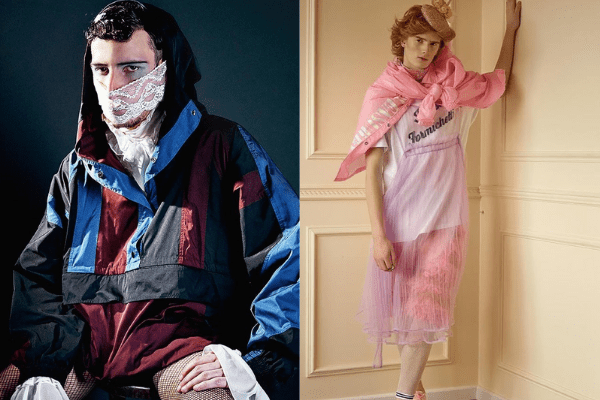The global pandemic has forced industries across the world to alter their game. The book publishing industry is changing. The live music industry is changing. Fashion too, is changing.
The British Fashion Council this week announced the cancellation of the Men’s component of the London Fashion Week to be replaced with a combined (non-binary) showcase of seasonal fashion to support and showcase designers around the world.
The event in June will not replace the main London Fashion Week scheduled for September, which has historically been female-centric.
The gender-neutral platform covering both menswear and womenswear will be the first show on this scale to be presented digitally.
The event will begin on June 12 and continue through to June 15. Designers will be asked to select either the June or September show to display their work. It will include designer diaries, webinars, digital showrooms, interviews and podcasts, which will be open to the public as well as retailers.
A growing number of brands are latching onto non-binary designs and representation as a younger generation of buyers seek fashion that provide alternative iterations of apparel against conservative gender constructions. In the last few years, designers have embraced a move to recognise consumers who are highlighting the importance of normalising gender fluidity, in addition to addressing concerns around climate change and over-consumption.
Two years ago, “unisex/non-binary” was added as a category to the New York Fashion Week by the Council of Fashion Designers, featuring gender neutral brands such as Vaquera and Telfar. Since then, new brands centering a non-binary aesthetic include Kromagnon, One DNA, Nicopanda and Eckhaus Latta.
The British Fashion Council’s announcement was not made based on the social revolt to dismantle traditional gender segregation, rather, to reflect the growing creative consciousness of the efficient use of resources during these challenging times. However, any space that breaks up the divide of two groups based on gender can only be a good thing.
Back in March, the British Fashion Council launched an initiative to support fashion designers affected by the pandemic. The Covid Crisis Fund, worth 1 million pounds, will go directly to supporting designer businesses, while a percentage will be allocated to fashion students to help their professional careers.
Caroline Rush, Chief Executive of the British Fashion Council, said collaboration and innovation is what the future will look like.
“Many of our businesses have always embraced London Fashion Week as a platform for not just fashion but for its influence on society, identity and culture,” she said.
“The current pandemic is leading us all to reflect more poignantly on the society we live in and how we want to live our lives and build businesses when we get through this. The other side of this crisis, we hope will be about sustainability, creativity and product that you value, respect, cherish. By creating a cultural fashion week platform, we are adapting digital innovation to best fit our needs today and something to build on as a global showcase for the future.”
The UK went into lockdown since March 24th, and has so far recorded 17,337 deaths.

